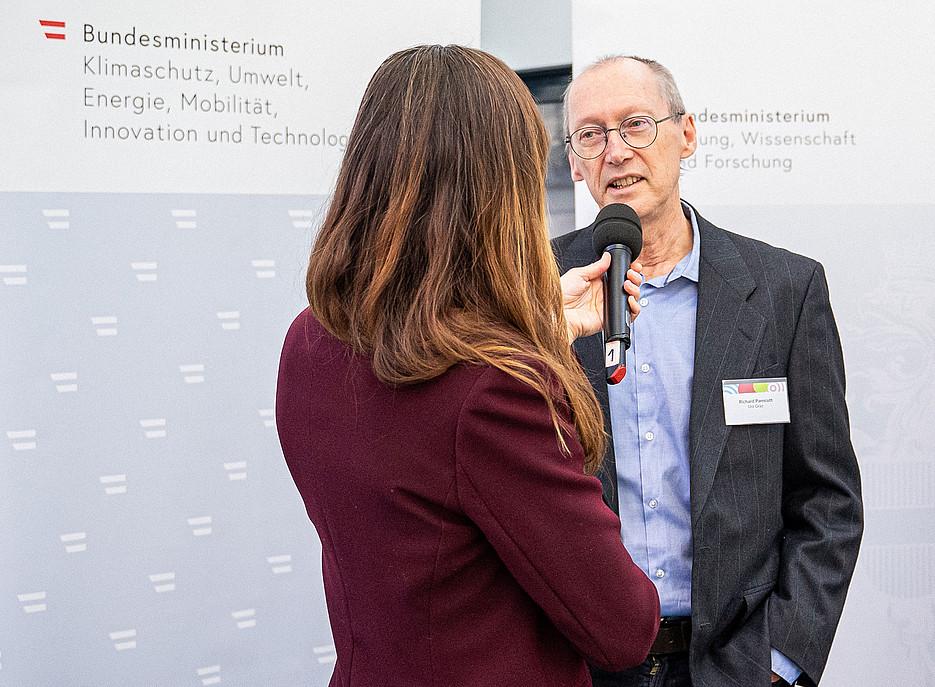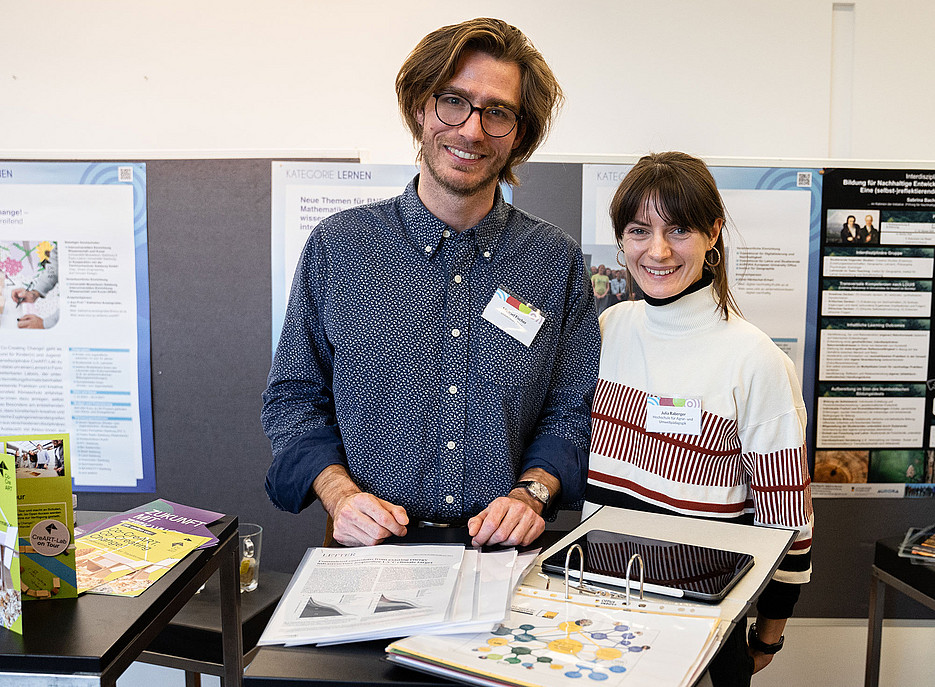The University of Graz has been dedicated to sustainable development for many years - in research and teaching as well as in operational management. "In line with our motto 'We work for tomorrow', we are working towards a future worth living. The two projects at our university that were honoured with this year's Sustainability Award show once again how committed and creative members of the University of Graz are to the sustainable transformation of our society," emphasises Rector Peter Riedler.
Climate-friendly conferences
A conference that takes place at several locations around the world at the same time and connects all participants around the globe: in 2018, Richard Parncutt, then Director of the Centre for Systematic Musicology, implemented his concept of a semi-virtual multi-hub conference for the first time. Around 600 researchers took part in the "15th International Conference for Music Perception and Cognition" and "10th Conference of the European Society for the Cognitive Science of Music" in Graz, Sydney/Australia, Montreal/Canada and La Plata/Argentina. Despite time differences, all hubs were able to communicate with each other for at least four hours a day. "The event serves as a model for climate-friendly planning of major international conferences by reducing CO2 emissions that would otherwise be caused by intercontinental flights. In addition, the format also enables interested parties from emerging countries to participate in the exchange of new scientific findings by eliminating high travel costs," says Parncutt, summarising the biggest plus points. Publications on the detailed implementation, experiences and suggestions for improvement should provide inspiration for further conferences of this kind.
Lessons that do the maths
Mathematical modelling helps us to better understand the world and learn how to solve problems, and not just in arithmetic. This also applies to current social challenges. Michael Fischer from the Didactics Centre for Natural Sciences and Mathematics shows what the subject can contribute to education for sustainable development in schools. "Based on current scientific publications, we have developed teaching materials on topics such as sustainability, wealth distribution, inflation, phasing out coal, weather forecasting and climate modelling," he reports. There were also concepts for project lessons in the classroom that link tasks in the field of mathematical modelling with the 17 Sustainable Development Goals. "Through science-based, interesting lessons, we want to raise awareness and promote pupils' sustainability skills so that they can contribute to the transformation of society," explains Fischer. The project, which is based at the University of Graz, brings together experts, teachers and students from various institutions, including the University of Agricultural and Environmental Policy, BOKU, the University of Teacher Education Upper Austria, the University of Vienna and the Vienna Chamber of Labour.
More information on the Sustainability Award of Austria's universities and colleges


